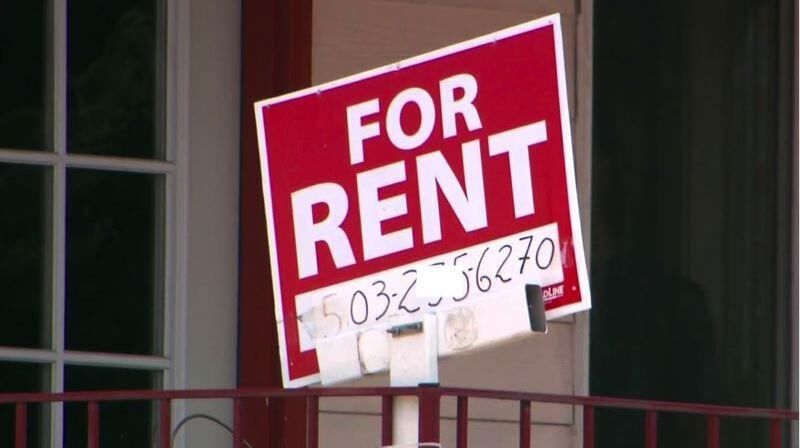Eviction restrictions renew legislative debate
Published 9:13 am Tuesday, January 31, 2023
Oregon’s renters and housing providers have renewed a political tug-of-war over a proposed reinstatement of pandemic-era requirements for serving notice of evictions based on nonpayment and carrying them out.
The debate occurred Monday as the Senate Housing and Development Committee took up Senate Bill 799. It proposes to reinstate a 60-day delay on landlord notices of evictions based on nonpayment of rent if tenants have filed official applications for rental assistance. It also would extend the period for actual evictions from 72 hours (three days) to 10 days.
Tenants and advocates say lawmakers need to renew protections as the number of eviction filings rose in the fourth quarter of 2022, after the remaining pandemic-era time limits expired on Sept. 30.
Lucy Briseno of Independence said if the previous protections had been in effect, she and her family would not have lost their home for a period.
“My eviction led to 20 months where my three children and I were homeless. With more time, I could have accessed resources,” she said. “I could have kept a stable home for my kids, one where they could walk to school. I would have kept my dignity. Forever, I’ll be healing from the trauma born out of being evicted and being homeless.”
Of nearly 80 witnesses who signed up, 55 expressed support and 25 opposition.
Sen. Kayse Jama, a Democrat from Portland and the committee chairman, said the committee is committed to achieving several goals.
“Our goal is to run an inclusive process that leads to people staying in their homes and paying rent, while making sure Oregon attracts and retains affordable rental housing,” he said in an opening statement.
“Homelessness hurts us all – from the human beings living on our streets, to families struggling to meet their basic needs, to the folks losing rental income and property value. We have to come together and leave no stone unturned in pursuit of reasonable, effective solutions.”
Advocates: Extend limits
Housing and homelessness are major issues in the current legislative session, which must end by June 25. The Senate committee will focus on more immediate issues, while its counterpart in the House will look at ways to stimulate increased housing construction.
“We know we must increase supply. But that is not going to be a quick solution,” Sybil Hebb, an attorney with the Oregon Law Center, told the committee.
“If we do not take steps to stabilize people who are currently housed, we will be in a perpetual negative cycle.”
According to a report by the Eviction Defense Project of the Oregon Law Center and Legal Aid Services of Oregon, average monthly filings for evictions rose to 2,155 in the fourth quarter of 2022 – after all pandemic-era restrictions expired on Sept. 30. Of that total, 86% were for nonpayment of rent. In the first six months of 2021, the monthly average was 377, though that figure has risen steadily since mid-2021. The numbers are drawn from Oregon Judicial Department records, though they do not account for tenants who may have been prompted to leave before eviction notices could be served.
The Stable Homes for Oregon Families coalition supports this bill, plus a renewal of state rental assistance at $100 million, and another bill to pare allowable annual rent increases.
Under a state law passed in 2019, annual rent increases are limited to the increase in the Consumer Price Index plus 7%, which the Oregon Office of Economic Analysis calculated a maximum cap of 14.6% for 2023 increases. The limit applies to housing 15 years or older.
The bill (Senate Bill 611 and House Bill 2733 are similar) would limit annual increases to the Consumer Price Index plus 3% — or 8%, whichever is lower.
Opponents: Time to move on
Deborah Imse, executive director of Multifamily NW – whose members manage 275,000 units – said she agrees that the state should re-establish a fund for rental assistance.
Oregon got almost $500 million in federal funds starting in mid-2021, and lawmakers approved $100 million from the 2019-21 state budget, for rental assistance. The state Department of Housing and Community Services proposed $60 million – an amount Imse says is inadequate — in the next two-year budget. Gov. Tina Kotek is expected to propose her own sum in her budget recommendations.
But Imse said that given housing providers’ experiences with rental assistance during the pandemic, nearly a third of tenant applicants will not qualify for aid – and providers faced agency red tape and other delays in making payments to them.
She said that reinstating the 60-day delay in eviction notices helps neither providers nor tenants.
“Emergency measures like this are not designed to be permanent public policy solutions,” she said.
“To make this permanent would destabilize rental housing further, because there is no guarantee that the housing providers will recoup the money they will inevitably lose because of these requirements. The 60-day requirement essentially forces housing providers to subsidize housing for anyone who has not paid their rent, regardless of the reason they have not done so, without a guarantee they will be made whole.”







